The profiles are arranged alphabetically by their last name.
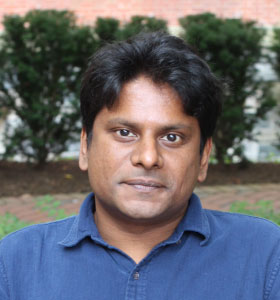
Dr Tariq Omar Ali
Associate Professor
Georgetown University, USA
Dr Tariq Omar Ali's research and teaching focus on nineteenth and twentieth century South Asia and global histories of capital. He is particularly interested in how the material and everyday lives of ordinary men and women are shaped by transnational circulations of commodities and capital. He explored how global capitalism shaped peasant life and society in the Bengal delta during the late nineteenth and early twentieth centuryin his first book, A Local History of Global Capital: Jute and Peasant Life in the Bengal Delta, (Princeton University Press, 2018. He is continuing this exploration in his current project, an examination of how decolonization, independence, and the rise of the nation-state restructured the working lives of peasants, boatmen, itinerant traders, and small businessmen in post-colonial East Pakistan (present-day Bangladesh) in the 1950s and 1960s.
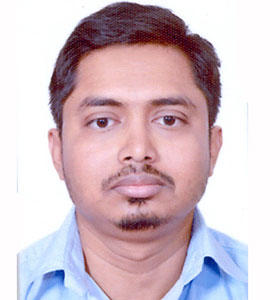
Dr Indrajit Bairagya
Assistant Professor
Centre for Human Resource Development
Institute for Social and Economic Change, Bangalore, India
Dr Indrajit Bairagya is currently working as an Assistant Professor at Institute for Social and Economic Change, Bangalore, India. Prior to this, he was Assistant Professor at the Tata Institute of Social Sciences, Guwahati Campus, India. His research interest includes the issues related to the labour economics and economics of education. He has his PhD in Economics from the Institute for Social and Economic Change, Bangalore, India. He has been awarded the Nancy Richard Ruggles Memorial Prize for the paper ‘Liberalization, Informal Sector and Formal–Informal Sectors’ Relationship: A Study of India’ from the International Association for Research in Income and Wealth (IARIW) in the year 2010. He has published a book titled “Liberalization and Performance of the Informal Sector: A Study of Indian Economy”, from Routledge-Taylor & Francis Group (London & New York). He has publications in various national and international journals including Structural Change and Economic Dynamics, Journal of Asian Economics, International Journal of Educational Development, Journal of the Asia Pacific Economy, Indian Economic Review and Economic and Political Weekly etc".
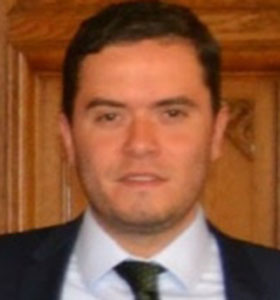
Dr Sebastian Franco-Bedoya
Research Analyst
The World Bank, Washington D.C.
Dr Sebastian Franco-Bedoya is an analyst at the South Asia Office of the Chief Economist at the World Bank. His research interests include International Economics, Regional Integration, Trade Costs, Macroeconomic Dynamics and Foreign Direct Investment. Before joining the World Bank, he worked at the European Central Bank and the Inter-Amerian Development Bank, after completing his Ph.D. at Ecole Polytechnique in Paris, France. His recent work at the World Bank includes contributions to the World Development Report 2020 "Trading for Development in the Age of Global Value Chains" and the South Asia Economic Focus.
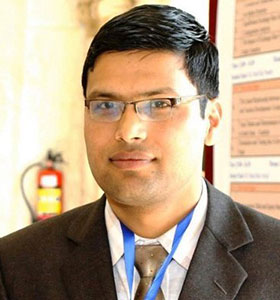
Siddha Raj Bhatta
Deputy Director
Research Department
Central Bank of Nepal
Siddha Raj Bhatta is the Deputy Director of Research Department at Central Bank of Nepal. Prior to this position, he was a Lecturer of Economics at Tribhuvan University, Nepal. He has a STEM Masters degree in Economics from Boston University, USA. He has published 4 research papers and also is the author of textbooks on economics for masters and high-school level students. His research interests include macroeconomics, econometric methods and international finance.
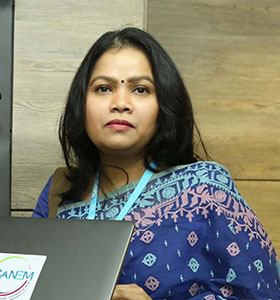
Dr Sayema Haque Bidisha
Professor of Economics
University of Dhaka and
Research Director, SANEM
Dr Sayema Haque Bidisha is a professor in the Department of Economics, University of Dhaka. She did her bachelors as well as masters from the Department of Economics, University of Dhaka and MSc. from the University of Bath, UK. She obtained a PhD in Labour Economics from the University of Nottingham, UK. Her research interest lies in labour economics, development economics, population economics and micro econometrics. Her work involves both empirical analysis as well as policy focused research with emphasis on developing countries. In the context of Bangladesh, she worked on a number of research projects on labour market, gender and women empowerment, gender budgeting, migration and remittance earning, credit and food security, population and development, economic growth and exchange rate movements, skill and education, demographic dividend and youth population etc. In addition, Dr. Bidisha has also worked closely with the Government of Bangladesh in preparing various policy documents and government flagship objects. In particular, she was actively engaged in drafting a number of chapters of the 6 th Five Year Plan of Bangladesh (e.g. Education and Training, Agriculture, Health and Nutrition) and also Perspective Plans of the country. She has worked with several international as well as national organisations e.g. the World Bank, IDRC, ILO, FAO, UNICEF, DFID etc. and has published a number of articles/book chapters in peer reviewed publications both at home and abroad.
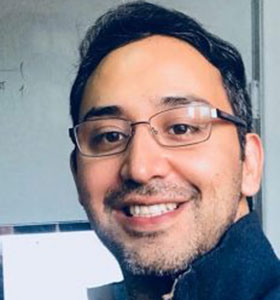
Dr Ricardo Nogales Carvajal
Research Officer
Oxford Poverty and
Human Development Initiative (OPHI)
Dr Ricardo Nogales Carvajal is a Research Officer at Oxford Poverty and Human Development Initiative (OPHI), University of Oxford. He is also a research fellow of School of Economics and Finance (Bolivia) at Universidad Privada Boliviana and a fellow of Global Labor Organization. He obtained his Ph.D. in Econometrics from University of Geneva, Switzerland. He has been teaching several courses at graduate level in University of Oxford. He has published 8 journal articles. He is also the author of several book chapters and policy papers. He was the member of the Queen’s Anniversary Prize winning research team, The Royal Anniversary Trust, 2020.
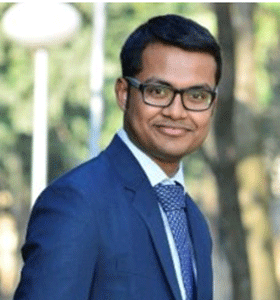
Himadri Shekhar Chakrabarty
Doctoral Research Fellow
Indian Institute of Management Calcutta
Himadri Shekhar Chakrabarty is pursuing his Ph.D. in the Economics Group of Indian Institute of Management, Calcutta. He completed his post graduation in Economics from Madras School of Economics and under-graduation from Scottish Church College under University of Calcutta. His thesis revolves around the exploration of off-balance sheet banking risks and off-budget government risks, from the perspective of India’s economy. His research interests lie in public finance, macroeconomics and applied econometrics. He has three years of prior work experience for two of the premier management consulting firms in the field of public finance management, fiduciary risk assessment, urban development and reforms and project management, wherein he extensively worked with several multilateral agencies and governments.
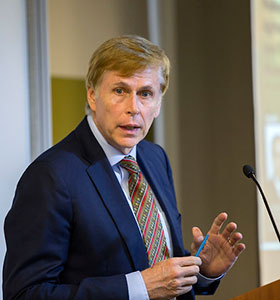
Dr Paul Dorosh
Director
Development Strategy and Governance Division IFPRI, USA
Dr Paul A. Dorosh has been the Division Director of IFPRI’s Development Strategy and Governance Division since April, 2011. His previous positions include IFPRI Senior Research Fellow and Program Leader of the Ethiopia Strategy Support Program in Addis Ababa (2008-2010), Senior Economist at the World Bank (2003-2008), senior research fellow with IFPRI in Dhaka, Bangladesh (1997-2001) and Associate Professor at Cornell University (1994-97). He holds a Ph.D. in Applied Economics from the Food Research Institute, Stanford University and a B.A. in Applied Mathematics from Harvard University, and has published research on agricultural markets, food policy, international trade, economy-wide modeling and the rural-urban transformation.
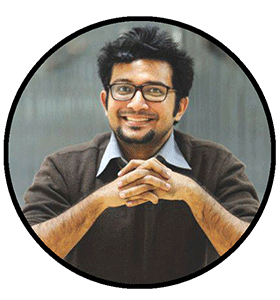
Adnan M. S. Fakir
PhD student in Economics
University of Western Australia
Adnan M. S. Fakir is a second year PhD Student at the University of Western Australia (UWA) and is a recipient of the Research Training Program Scholarship from the Australian Government. Adnan obtained his MSc from the University of Sussex and BSc from BRAC University. His interest lie in political economy, health, migration, conflict and female empowerment, and has publications in reputed journals, such as Economic Analysis and Policy, Health Economics, and World Development Perspectives, amongst others. Alongside his doctoral studies, Adnan is currently the principal investigator of an RCT, funded jointly by Johns Hopkins Institute for Global Tobacco Control and BRAC University, testing nudge-based interventions for tobacco intake reduction in the riverine islands of Gaibandha. He is also a co-investigator for a research project studying the impacts of forced sterilization and the use of health care in India, jointly undertaken by UWA and Saint Mary’s University. Adnan is presently on study leave as a senior lecturer at BRAC University and has previously worked as a Consultant for the Mind, Behaviour and Development Unit at The World Bank.
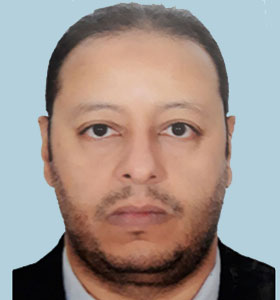
Dr Said Ait Faraji
Head of Department of Multisectoral Models
Ministry of Economy and Finance, Morocco
Said Ait Faraji is a State Engineer, Statistician-Economist by training. He is currently Head of the Multisectoral Models Service of the Forecasting Models Division in the Department of Studies and Financial Forecasts under the Ministry of the Economy, Finance, and Administrative Reform of Morocco. As part of his professional activities, he has participated in several (economic) modeling work in study projects in collaboration with international experts belonging to international organizations (Offices and Study and Research Centers). In addition to his professional activity, he is a doctoral researcher at the National Institute of Statistics and Applied Economics (INSEA), in Morocco, in the Gender, Economy, Statistics, Demography and Sustainable Development Laboratory (LAB_GES3D). The thesis project, on which he is working, deals with the research subject "Opening up Morocco to African countries: What opportunity (s)? ". Ait Faraji Said is passionate about statistical studies and modeling applied to several areas of collective social and societal interest such as human sciences, Marketing, sport and culture. As a result, he is an active member and founding member of an association of statisticians called « Association des Statisticens Libres » (ASL) headquartered in Rabat (Morocco).

Burton Flynn
Managing Partner, Terra Nova Capital
Burton Flynn is Managing Partner at Terra Nova Capital and a PhD Candidate in Finance at the Business School (formally Cass), University of London. Terra Nova Capital serves as the advisor to the Evli Emerging Frontier Fund which invests in equity of listed companies in lesser-known and hard-to-access frontier and smaller emerging markets in Asia, Africa, Latin America, and the Middle East, and has lived in 14 emerging markets. Burton's current research focuses on the impact of Covid-19 on companies in emerging markets, ESG factors in investing, and the value of investor meetings with CEOs. He is a CFA charter holder, and holds an MBA in Finance from the Wharton School at the University of Pennsylvania, as well as a BS in Finance from the University of Utah.
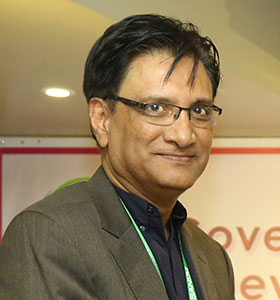
Dr Mirza Hassan
Head of the Governance and Politics Cluster
Brac Institute of Governance and Development Brac University, Bangladesh
Dr. Mirza M. Hassan is a political economist and the Head of the Governance and Politics Cluster of BIGD, Brac University. Dr. Hassan's research largely focuses on political development, state-business relations, urban governance and local governance, justice sector and human rights, and related issues in South Asia, Pacific region and North Africa. He has more than 20 years of consulting experience on these issues for DFID, The Asia Foundation, The World Bank, UNDP, CARE Bangladesh, and other development agencies. He is well versed in conducting political economy analysis, institutional and stakeholder analysis, and using mixed methods. He completed his PhD in Development Studies from the Institute of Commonwealth Studies (ICS), University of London, UK and his MA in Urban Studies and Planning from the Massachusetts Institute of Technology (MIT), Cambridge, USA. He is also an honorary Academic Fellow of the Institute of Development Policy Management (IDPM), University of Manchester, UK.

Dr Naomi Hossain
Research Professor
The American University, USA
Dr Naomi Hossain researches the politics of development, with a focus on understanding how people living with poverty and precarity get the public services they need. She has researched extensively across Bangladesh, as well as managing large international studies spanning another 20 countries in Asia, Africa, Latin America, and Europe. Her work increasingly focuses on accountability for disasters and crises, such as food and energy price shocks, ‘natural’ disasters, and industrial accidents, and on the role of protest in holding public authorities to account. She acts as an advisor to multilateral agencies, governments, NGOs and research institutions. Since 2019, a Research Professor at the Accountability Research Center at the School of International Service, she is also a Senior Research Fellow at the Institute of Development Studies at the University of Sussex, and a former employee of BRAC in Bangladesh. Recent books, edited or authored: The Politics of Education in Developing Countries (open access) (2019; Oxford University Press) Food Riots, Food Rights, and the Politics of Provisions (2017; Routledge) The Aid Lab: understanding Bangladesh's unexpected success (2017; Oxford University Press)
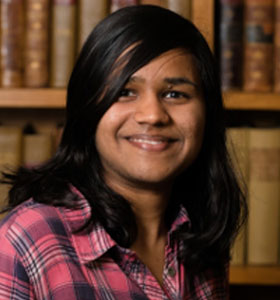
Ronak Jain
PhD candidate in Economics
Harvard University, USA
Ronak Jain is a PhD Candidate in Economics at Harvard University. Her research interests include development and labor economics. Her ongoing research examines the effect of COVID-19 shock on the labor market and poverty in South Africa, and the role of teacher expectations on student performance. Her previous research work includes theoretical modelling of teacher behavior under performance pay in India.
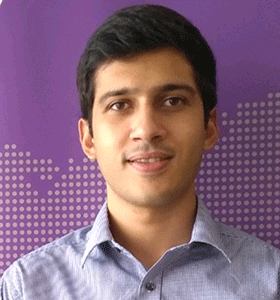
Madhav Malhotra
Project Manager
Thilawa SEZ
International Growth Centre (Myanmar), LSE
Madhav Malhotra is an economist working with the International Growth Centre, LSE, in the Myanmar country office as a Project Manager. He is overseeing the centre's activities at Thilawa Special Economic Zone, Myanmar's first operational SEZ, across multiple projects funded by DFID (now FCDO). He is also providing research assistance to Amit Khandelwal and Rocco Macchiavello at Columbia Business School and the London School of Economics, respectively, in their research agenda to identify the modalities of knowledge transfer from FDI firms to the domestic economy in Myanmar. Prior to this he has worked as a short-term researcher with the Centre for Economic Performance, LSE and NITI Aayog (The Planning Commission of India) on trade-related areas like piggyback exporting in Kenya and the textile value chain in South Asia. Madhav’s interests lie in applied microeconomics in trade, industrial policy, labour markets and political economy, with macroeconomic implications on growth and development. He has completed his M.Phil. in Economics from the University of Oxford and his B.A. from Hans Raj College, University of Delhi.
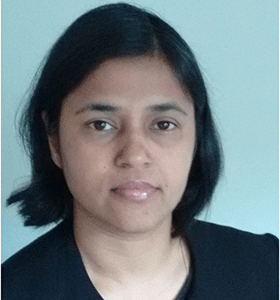
Dr Indrani Manna
Assistant General Manager
Research, Reserve Bank of India
Dr Indrani Manna is Director, Research with the Reserve Bank of India. She has been working with the central bank of India for the past 14 years. She has a doctorate in economics from the University of Kansas, USA. Her research interests include macroeconomics and non-parametric econometrics. She has published in reputed journals like the Quarterly Journal of Finance and Accounting and the Open Economies Review.
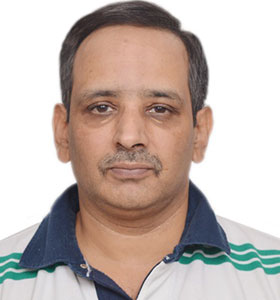
Dr Somesh K Mathur
Professor
Department of Economic Sciences
Indian Institute of Technology, Kanpur, India
Dr Somesh K Mathur is a Professor at Department of Economic Sciences, Indian Institute of Technology, Kanpur. He obtained his Ph.D. in Economics from CITD, JNU, Delhi. His research interests include efficiency and productivity analysis, new trade and growth theories, evaluating trade agreements, gravity analysis, convergence issues, spatial planning, CGE and smart analysis, applied econometrics, trips and other WTO issues, trade and employment, trade and wage inequality, regional inequality and unemployment. He also worked as a Lecturer in Economics at Department of Economics, Jamia Millia Islamia University, Delhi from 1996 to 2006. He has been the author, co-author and editor of seven books and more than 40 papers.
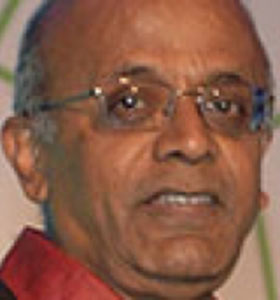
Dr Dev Nathan
Visiting Professor
Institute for Human Development, Delhi and
Research Director, GenDev Centre for Research and Innovation, India
Dr Dev Nathan studied economics at the University of Bombay. He is Professor at the Institute for Human Development, New Delhi, and also Visiting Research Fellow at Duke University, USA. Currently he is the Coordinator of the IDRC-supported South Asia Research Network (SARNET) on Employment and Social Protection. He was one of the research coordinators of the just concluded multi-country research project Capturing the Gains: Economic and Social Upgrading in Global Production. His research interests include labour in global production, gender relations and development issues of indigenous peoples. Some of his recent co-authored and co-edited books are Markets and Indigenous Peoples in Asia (Oxford University Press, 2012) and Labour in Global Production Networks in India (Oxford University Press, 2010).

Eleanya Nduka
Lecturer
Department of Economics
University of Nigeria
Eleanya Nduka is a PhD candidate in Economics at the University of Exeter, UK. He uses the stated preference method to elicit households' energy preferences and estimate their welfare.
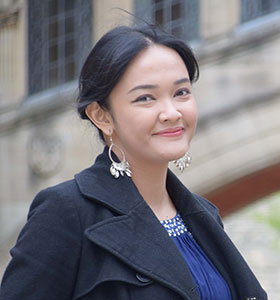
Dyah Pritadrajati
Social Protection Monitoring & Evaluation Expert
Asian Development Bank (ADB)
PhD Student, Australian National University
Dyah Pritadrajati is a Social Protection M&E Expert (Consultant) at the Asian Development Bank and a PhD student at the Crawford School of Public Policy, Australian National University majoring Economics. Her research interests lie primarily in the intersection of labor and education economics, particularly on technical and vocational education and training (TVET). She also works on topics related to minimum wage, choice of human capital investment, youth unemployment and informal sector employment. She holds master degrees from the University of Oxford and the University of Cambridge. After completing her master degrees, she continuously exercisedher analytical and critical skills by interning at United Nations Economic and Social Commission for Asia and the Pacific (UNESCAP) and International Fund for Agricultural Development (IFAD). Following her internships, she puts her expertise into practice by working on strategic issues related to international and development economics with the Oxford Poverty and Human Development Initiative (OPHI), Economic Research Institute for ASEAN and East Asia (ERIA), Executive Office of the President of Republic of Indonesia, and Bank Indonesia Institute.
Dr M. A. Razzaque
Director (Research)
Policy Research Institute of Bangladesh
Dr M. A. Razzaque is a trained economist specializing in applied trade and development issues with extensive senior leadership and management experience at international level. During 2012-17, he was Head of International Trade Policy at Commonwealth Secretariat, London, directing its policy and global advocacy work related to emerging issues in world trade, trade negotiations, Aid for Trade, global value chains, trade between Commonwealth members, Brexit and its implications, etc. He was also the editor of Trade Hot Topics, one of the most widely read Commonwealth publication series. He has considerable experience in teaching international trade, development economics, and econometrics both at undergraduate and graduate levels as a faculty member of Economics Department at Dhaka University during 1998-2007. He has led and managed several multi-country (involving sub-Saharan African, South Asian, Caribbean and Pacific economies) and country-specific research projects on trade and development. Results of these projects have been documented in academic research articles, policy briefs, and as chapters in edited volumes. He possesses vast experience of organising international events, conferences, and workshops. He is regularly invited to speak as a panelist in international and regional events. He has presented papers in academic seminars; made presentations on conference/workshop themes; commented on technical and policy papers as a designated discussant; briefed senior government officials; and conducted training workshops on trade and development policy issues. He has also been called to provide evidence before House of Lords and House of Commons Committees (of the UK Parliament). Amongst others, his research was cited in The Economist, and, most recently, his analysis on implications of Brexit was published in many newspapers and online media outlets in several countries. He was the lead author of the first ever Commonwealth trade flagship report “The Commonwealth in the Unfolding Global Trade Landscape” the findings of which have been widely quoted, including in UK parliamentary debates.

Dr Prasenjit Sarkhel
Associate Professor
Department of Economics
University of Kalyani, India
Dr Prasenjit Sarkhel is an Associate Professor, Department of Economics, University of Kalyani. His teaching areas are Development Economics, Applied Econometrics, Microeconomic Theory and Natural Resource and Environmental Economics. His research interests include Public Economics, Health seeking behavior, Environmental Regulation and Non-market Valuation. He completed his PhD from University of Calcutta and did his post-doctoral research from Virginia Polytechnic and State University, United States of America. He had received research grants from agencies like University Grants Commission (UGC) India, Government of Mizoram and South Asian Network for Development and Environmental Economics (SANDEE). He is the recipient of Raman Fellowship from University Grants Commission, India. Dr. Sarkhel has published extensively in International and National Journals of repute as well as in edited books from Springer and Routledge. Besides academic writing, he also contributes to the opinion piece of editorials in leading newspapers and media on social and economic issues.
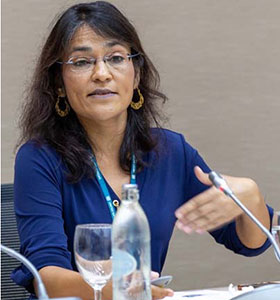
Dr Sweta C. Saxena
Chief
Macroeconomic Policy and Analysis Section
UNESCAP, Bangkok
Dr Sweta C. Saxena is currently on leave from the IMF to serve as the Chief in the Macroeconomic Policy and Financing for Development Division at the UN Economic and Social Commission for Asia and the Pacific (UNESCAP) in Bangkok, Thailand. She has led ESCAP's 2019 Flagship report, titled "Ambitions beyond growth" and 2020 Flagship, titled "Towards sustainable economies." At the IMF, she has worked on multilateral surveillance for the G20 countries in the Research Department and on fragile countries in the African Department. Her research has focused on policy-relevant macro-financial issues, namely, crises and recoveries, contagion, and exchange rates. Sweta has published extensively, including in the American Economic Review and the Journal of International Economics. Prior to joining the IMF, she worked at the Bank for International Settlements in Basel, Switzerland, and as an Assistant Professor at the University of Pittsburgh. Sweta obtained her PhD in economics from the University of Washington and a Masters in Economics from the Delhi School of Economics.

Dr Guy Stuart
Executive Director
Microfinance Opportunities, U.S.A
Dr Guy Stuart is Executive Director of Microfinance Opportunities. He provides the strategic vision for the organization in close collaboration with MFO’s team of dedicated professionals. Guy has extensive experience conducting research on the financial capabilities of low-income consumers. His research has been published in books, peer reviewed journals, working papers, and blogs. Before becoming Executive Director, Guy was a Lecturer in Public Policy at the Harvard Kennedy School where he taught courses in management and microfinance for 13 years. At the same time he was a Senior Advisor to MFO and served as Principal Investigator on five Financial Diaries studies and as project leader for the development of the Financial Capabilities Index Web Portal. Guy received his PhD from the University of Chicago in 1994, and he is currently a Fellow at the Ash Center, Harvard University.
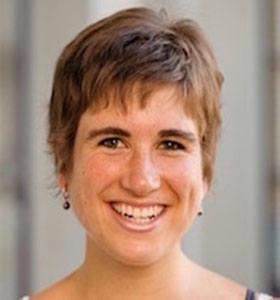
Eleanor Wiseman
PhD Student
Development Economics
University of California Berkeley, USA
Eleanor Wiseman is a PhD student at the University of California Berkeley (USA) who specializes in development economics, econometrics and political economy. She earned her degree in Economics from the University of Cambridge in the UK and her masters at Yale University. Her research focuses on corruption, bargaining and information diffusion and is mostly located in Sub-Saharan Africa and India. Her recent research projects look at cross-border trade, the links between formal and informal trade routes and the role of information and bargaining power in reducing corruption and trade costs. In this conference, she will present how those issues come at play when traders in East Africa are faced with Covid-19 restrictions. She also works on issues around elections. She studies the role ethnicity plays in registration and voting behaviors in East Africa and in another research project, how registration and voting behaviors change after a significant public health disaster amongst low income populations in the US. In addition, she studies technology adoption and information diffusion in the context of new agriculture seed technologies in India.
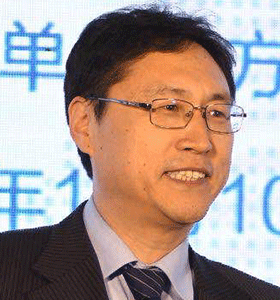
Dr Xiaobo Zhang
Senior Research Fellow
IFPRI, Washington D.C.
Dr. Xiaobo Zhang is a senior research fellow in IFPRI’s Development Strategy and Governance Division and chair professor of economics at Peking University. He received his Ph.D. in applied economics and management from Cornell University. His main interests are agricultural economics, development economics, and Chinese economy He has published widely in top economics journals, such as Journal of Political Economy, Proceedings of National Academy of Science, American Journal of Agricultural Economics, Journal of Development Economics, Journal of Economics Perspective, Journal of International Economics, and Journal of Public Economics. His recent books include Oxford Companion to the Economics of China (2014) and The Making of a Blue Revolution in Bangladesh Enablers, Impacts, and the Path Ahead for Aquaculture (2019). He is the Chief Editor of China Economic Review. He received Sun Yefang Prize for Economics Research in China (the most prestigious award in the field of economics in China) and Zhang Peigang Development Economics Outstanding Achievement Award (the highest award in the field of development economics in China). He is a co-PI of China Family Panel Studies (CFPS) survey and PI of Enterprise Survey for Innovation and Entrepreneurship in China (ESIEC).
